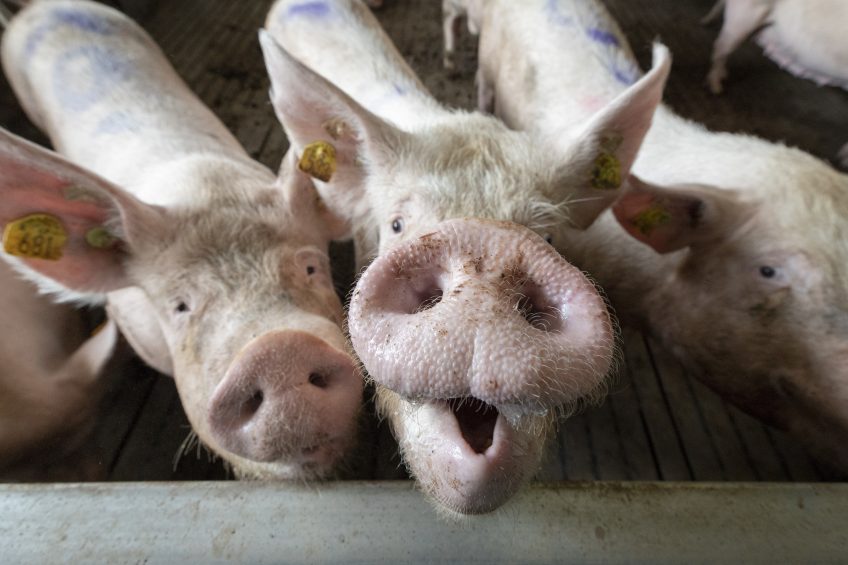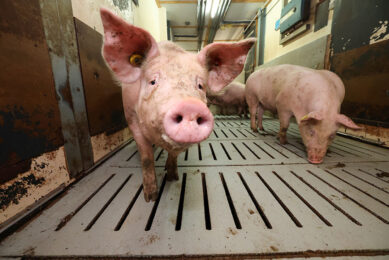Can pigs develop friendships?

Pigs may be able to form ‘social preferences’. Researchers from the Czech Republic and Brazil recently shared data that seems to point in this direction.
The study was presented at the recently held Congress of the International Society for Applied Ethology (ISAE), in Charlottetown, PEI, Canada. That congress was held July 30-August 3, 2018.
Do pigs form preferred associations?
The researchers wondered whether pigs in a stable group form preferred associations. In addition, they wanted to know whether gender, relatedness and social dominance influence social preference.
The background of the study was that if indeed pairs of preferred partners can be identified, it might be a way to ensure better welfare in pigs. After all, domestic pigs often experience disruptions in the social bonds, e.g. at weaning or when being moved from one group to the next.
The group observed a relatively small group of 24 Přeštice pigs, a rare Czech breed. The animals were of mixed gender and consisted of pigs from 3 litters. They had access to indoor and outdoor areas. In a time-frame of 18 days, the animals were followed for 33 hours over the summer of 2016. Both situations of rest and of activity were taken into account.
Minor effect of gender on proximity at rest
The team of scientists noted that there was only a minor effect of gender on proximity at rest, with pigs of the same gender associating more.

As conclusion, the researchers found that pigs form ‘non-random associations’, which seemed to be mainly determined by factors other than gender, relatedness and dominance. They added that additional research will focus on other drivers, such as personality.
Also they stressed the importance of considering the behavioural state when examining individual relationships.
The poster was written by Sébastien Goumon, Gudrun Illman, Iwa Leszkowova and Anne Dostálová, Institute of Animal Science, Prague, Czech Republic; and Mauricio Cantor, Universidade Federal de Santa Catarina, Brazil.











